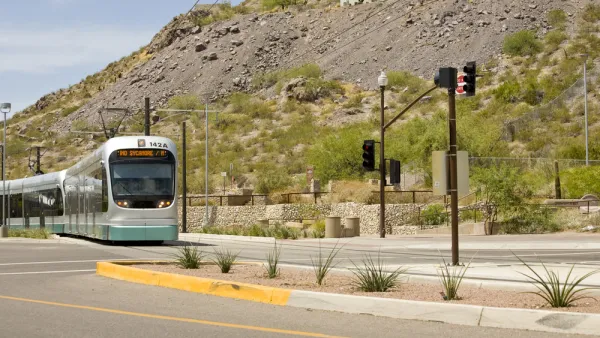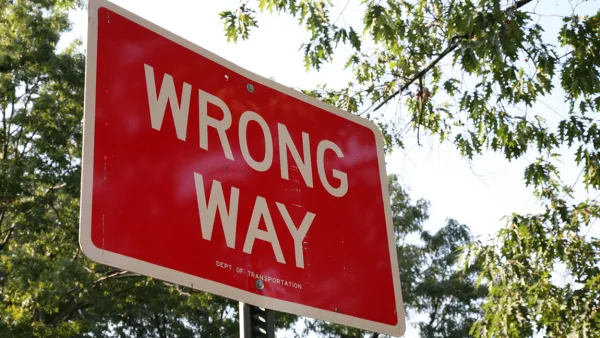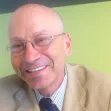VMT
State-Level Data Reveals Earlier Peak Driving than Previously Thought
With implications on the narrative of peak driving and on the economic forces that drive the country, a new study reveals that some statewide populations began driving less as early as 1992.
Significant Jump in California Driving
Mirroring a previously reported increase in gasoline consumption in California, the vehicle miles traveled increase over last year is the largest in a decade. The reasons are the same: cheaper gas and an improved economy with more people working.
A New Era in California for Evaluating Transportation Emissions
An appellate court's rejection of SANDAG's $200 billion sustainable communities plan holds far-reaching implications for how regional planners evaluate greenhouse gas emissions from transportation to meet SB 375 requirements to the year 2050.

If Millennials Drive Less, it's Not All a Matter of Taste
Bill Fulton writes for CP&DR that while some Millennials may be driving less because they've chosen urban, transit-friendly lifestyles, many more young people are driving less simply because they can't afford to.
California's Proposed Traffic Impact Rules Rethink Congestion
California planning expert Bill Fulton discusses a long-awaited proposal from the Governor's Office of Planning and Research that would shift the state's traffic impact assessments away from their current focus on traffic congestion.

Arizona Residents Ditching Cars, Taking Transit
A new report finds that residents of Arizona are driving less—much, much less. Arizonans drive less that they did in the 1990s, in fact. Despite these trends, the state government has not adjusted its traffic forecasting models.
More Disincentives for Driving Required for Philadelphia to Achieve 'Greenest' Status
Philadelphia's Mayor Michael Nutter has set a policy goal of becoming the "Greenest City in America," but the city's lack of progress in reducing automobile use is a troubling obstacle to such a lofty goal.
Rejecting the Popular Transit Ridership Narrative
A recent study claimed that transit ridership had reached the highest levels seen in 57 years. Wendell Cox, however, argues that the narrative about a “fundamental shift” in the transportation paradigm is a misrepresentation of the truth.
Increases in Transit Ridership Overthrowing Assumptions About Why We Ride
A recent report by the American Public Transportation Association (APTA) shows transit ridership increasing to historic levels. The surprise is that the increase occurs as gas prices have fallen.

USDOT Continues to Overestimate Future Vehicle Travel - When Will They Learn?
The USDOT's "Conditions & Performance Report" predicts that VMT will grow between 1.36% and 1.85%, although current demographic and economic trends have resulted in flat or negative growth in recent years. Why won't they learn?
LEED-ND Proves Effective at Reducing Driving
Using complex transportation modeling, new research published in the Journal of Planning Education and Research confirms that developments built to the standards of LEED for Neighborhood Development (LEED-ND) reduce driving and associated emissions.
How Driving Less and Renting More May Change Our Economy
Two Atlantic editors investigate why the younger generation is not only driving less but also less likely to purchase homes than their baby boomer parents. Is it temporary, a result of a bad economy, or are these behaviors a permanent shift?
More Drivers Pumping Less Fuel In California & U.S.
Since 2002, California has added 8.3% more drivers while reducing its gasoline consumption by 3.5%. And while taking the lead, they are not alone in this trend. Credit high fuel prices, economic stress and improved car technology for the reduction.
VMT Has Peaked In Cities, Says New Report
An Australian study indicates that in large cities in Europe, North America and Australia, driving has 'peaked' largely due to congestion causing a limit to commuter's travel, known as the Marchetti wall.
Behavioral Shift in the Way We Drive
When "peak car use" is reached, the only way to go is down, claim Australian scholars Peter Newman and Jeff Kenworthy. They say we're already there - between 1995 to 2000, per capita VMT in some major cities around the world decreased.
Has VMT Peaked?
A new study in 8 countries says yes, contrary to government predictions.
Transportation Solutions Illustrated
This article from OnEarth magazine looks at ideas for improving transportation in the United States, and offers some illustrations to help explain.
The Looming Era of VMT
The gas tax is becoming an increasingly outdated and unsustainable idea. This piece from Miller McCune looks at the prospect of replacing it with a tax based on vehicle miles traveled.
How could Ventura transform?
A short documentary exploring the development challenges that the City of Ventura faces.
Traffic Deaths at 60-Year Low
Traffic deaths are down almost 10% for last year- in fact, they haven't been this low since 1950. Why?
Pagination
Urban Design for Planners 1: Software Tools
This six-course series explores essential urban design concepts using open source software and equips planners with the tools they need to participate fully in the urban design process.
Planning for Universal Design
Learn the tools for implementing Universal Design in planning regulations.
EMC Planning Group, Inc.
Planetizen
Planetizen
Mpact (formerly Rail~Volution)
Great Falls Development Authority, Inc.
HUDs Office of Policy Development and Research
NYU Wagner Graduate School of Public Service


































